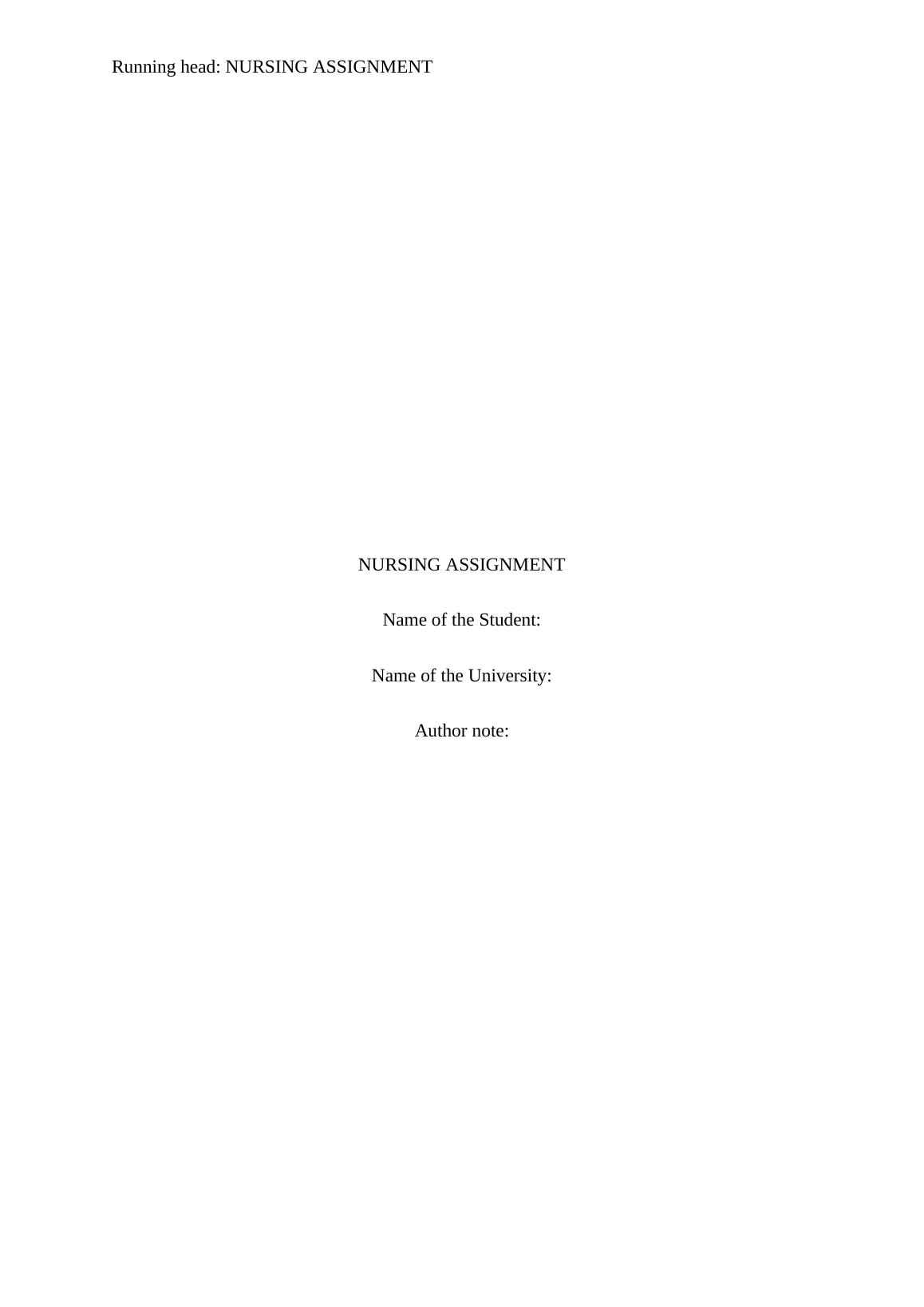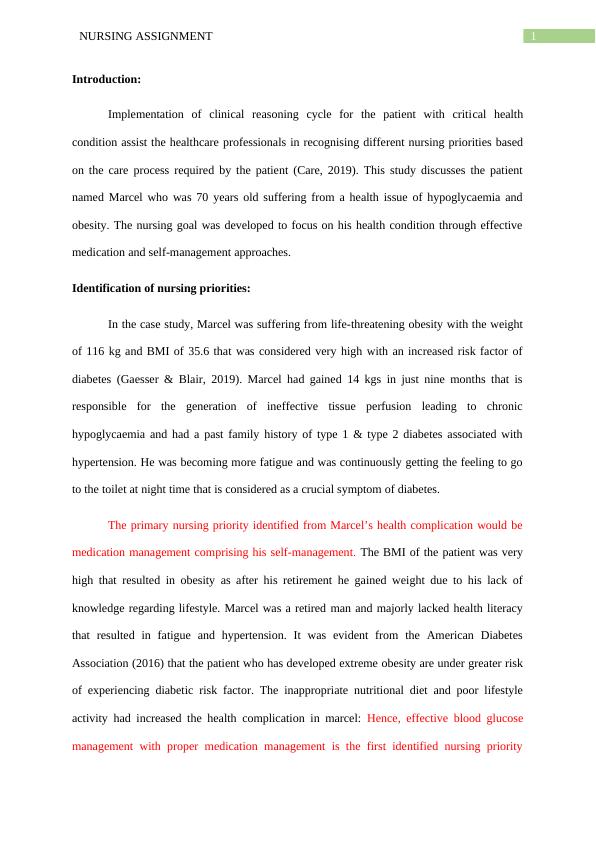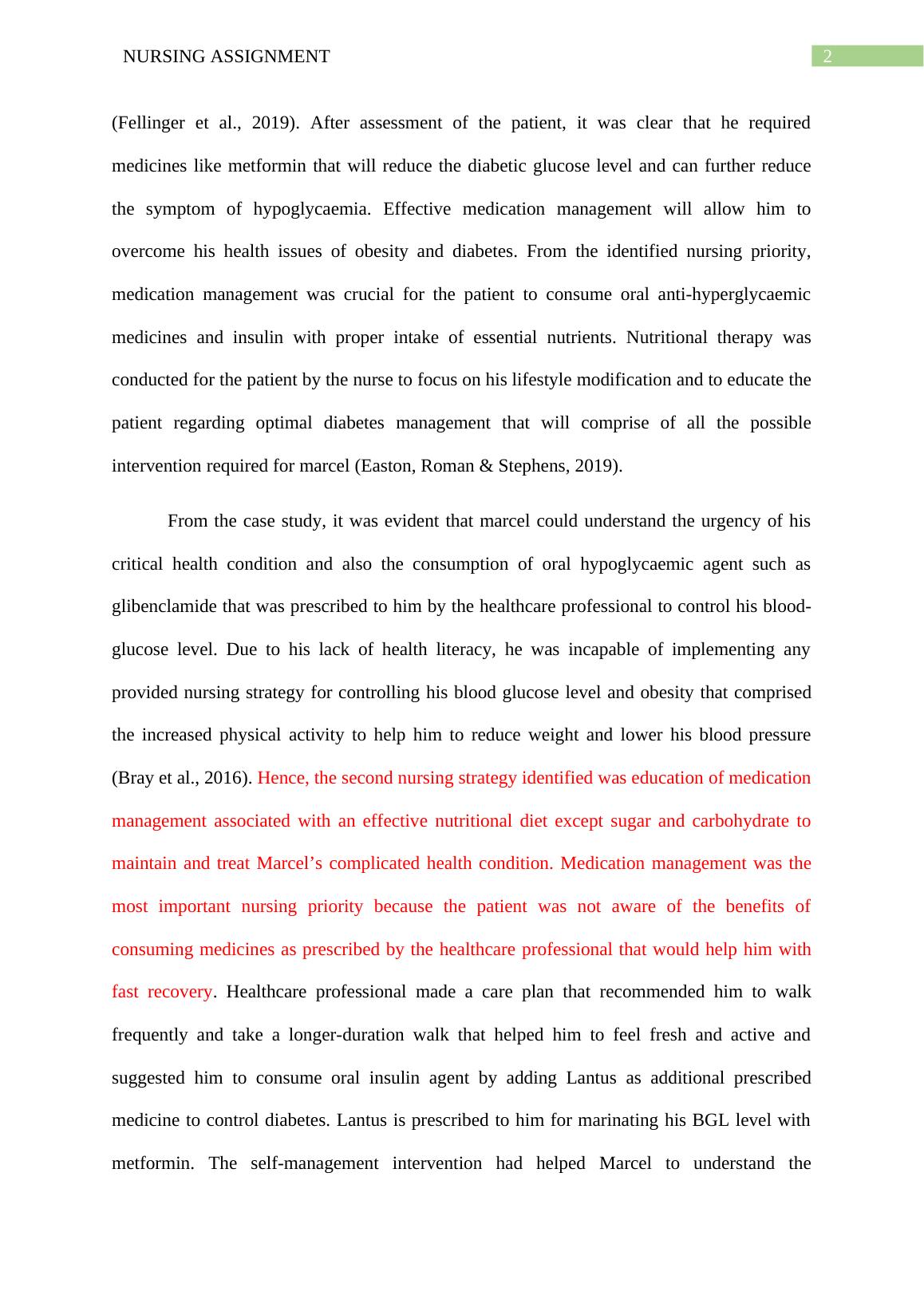Nursing Assignment: Implementation of Clinical Reasoning Cycle for a Patient with Critical Health Condition
Explain how to support Marcel with his medication management using the clinical reasoning cycle and best available evidence.
7 Pages1494 Words77 Views
Added on 2023-01-19
About This Document
This study discusses the implementation of clinical reasoning cycle for a patient with critical health condition and the nursing priorities identified for effective medication and self-management approaches.
Nursing Assignment: Implementation of Clinical Reasoning Cycle for a Patient with Critical Health Condition
Explain how to support Marcel with his medication management using the clinical reasoning cycle and best available evidence.
Added on 2023-01-19
ShareRelated Documents
End of preview
Want to access all the pages? Upload your documents or become a member.
Nursing Assignment: Clinical Reasoning Cycle and Nursing Priorities
|8
|1519
|28
Nursing Assignment: Application of Clinical Reasoning Cycle
|7
|1451
|98
Nursing Medication Management
|6
|1276
|434
Clinical Process Case Study
|6
|1301
|67
Nursing Assignment: Marcel's Case Study
|7
|1572
|63
Evidence-Based Nursing Practice
|6
|1543
|433



